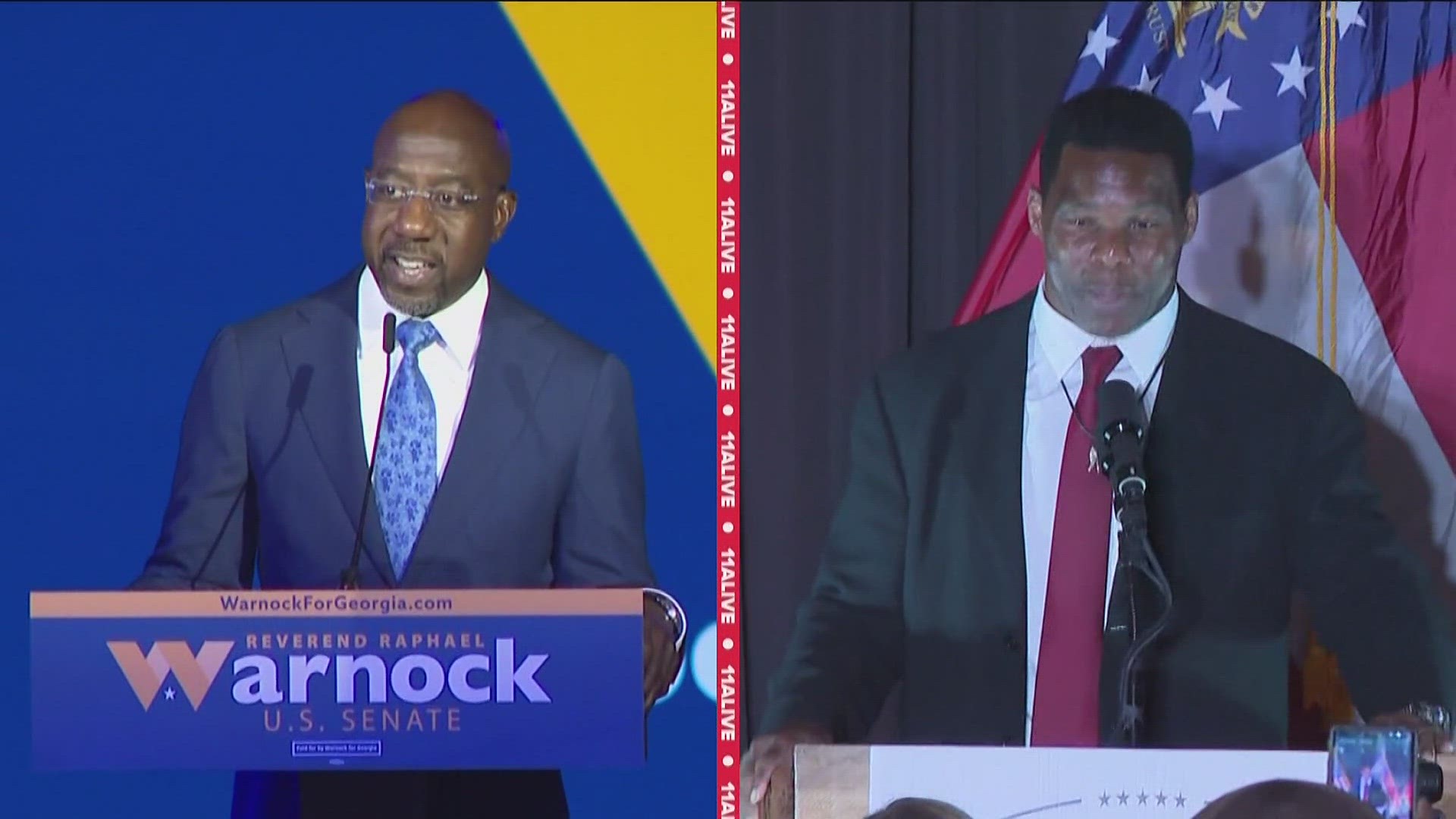ATLANTA — Two election reform bills could get new traction after a high-profile call to eliminate Georgia's election runoffs.
Sec. of State Brad Raffensperger announced this week he wants to eliminate runoff elections in Georgia. The Republican election chief said runoffs fouled the holiday season last year and in 2020.
To win an election in Georgia, candidates have to win 50% of the vote plus one. Georgia's runoff law is a vestige of Jim Crow when white majorities used runoffs to defeat candidates of color.
When Sen. Raphael Warnock beat UGA football legend Herschel Walker in last year’s United States Senate race – it took a six-week runoff to get Warnock over the victory threshold.
Two years earlier, senate candidates Jon Ossoff, David Perdue, Kelly Loeffler and Warnock had to extend their campaigns into a runoff.
Because voter turnout drops in a runoff, state Rep. Saira Draper (D-Atlanta) says it’s not a smart way to choose candidates.
"I think the people of Georgia are absolutely exhausted. They want elected representation that is elected by the largest number of people, not a small fraction of people that happen to come out in a runoff. So there’s lots of reasons to want this bill," Draper said Thursday.
Draper’s bill introduced earlier this year would give the election to the candidate who prevails with at least 45 percent of the vote. Less than that would require a runoff.
Another bill pending would create an "automatic runoff" by letting city-election voters rank candidates on their ballots – eliminating lower-ranked candidates, then scoring the higher-ranking candidates, creating one winner. The cities would have to opt-in for such a runoff scheme under the bipartisan House measure.
11Alive commissioned a scientific poll in 2022 that asked voters statewide about Georgia’s runoff elections. Only about half of them were in favor of keeping the runoff.
Meantime voter data in 2020 showed that about 9% of the voters – almost a half million voters -- who cast ballots in November stayed home and skipped the two U.S. senate runoffs.

